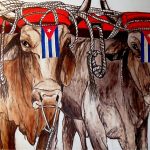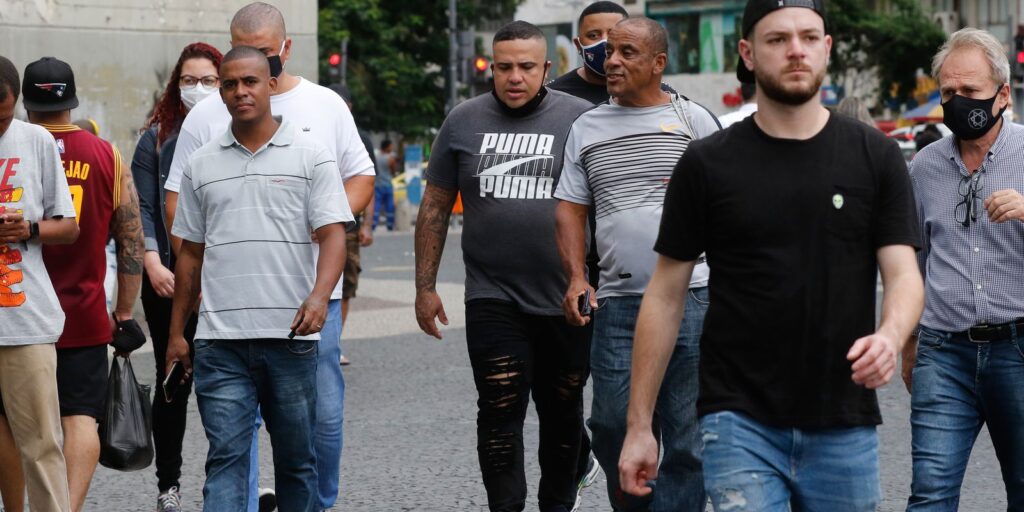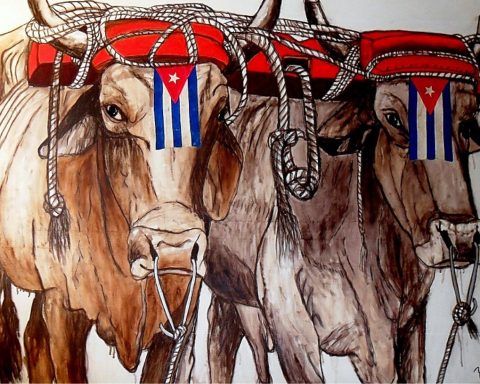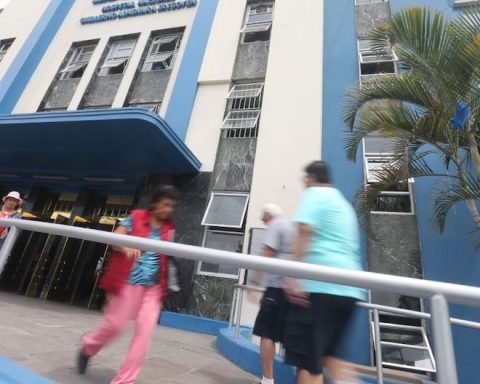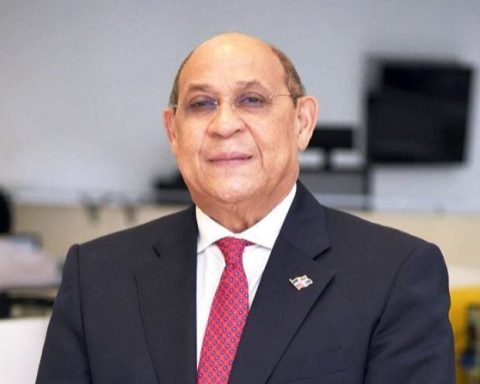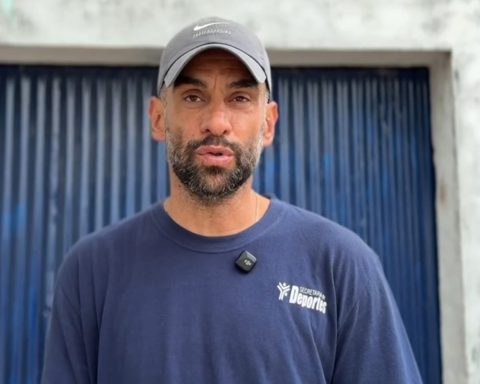Specialists and relatives of people who received or donated organs considered necessary better communication and greater awareness of the population about the problem of ablation, within the framework of the 29th. World Transplant Congress, organized by the World Transplant Society (TTS), which began this Sunday in Buenos Aires and is the first to be held in Latin America.
The Congress will take place over four days, until next Wednesday, at the Exhibition and Convention Center of the City of Buenos Aires, located in the Buenos Aires neighborhood of Recoleta, with the participation of more than 3,000 speakers, including specialists, officials from entities international organ donation centers and relatives of patients.
The vice president of the Argentine Transplant Society (SAT), Gabriel Gondolesi told Télam that Holding the Congress is “a real pride, because the world transplant society is 58 years old, and because it is the first time it has come to Latin America, after six years of struggle by the different transplant organizations in South America.” .
In this sense, he considered that the congress has “great relevance in the aspect of research, in raising awareness about the problem of organ donation and new regulations to facilitate donation”.
The specialist, who has been part of the SAT for 25 years, considered that the meeting “will allow us to observe the innovations in medicine at a global level that, for multiple reasons, cannot be done in the country, in addition to making the world known what we do in terms of donation”.
In this sense, Gustavo de Mare, father of Vicky, a 12-year-old girl who received an organ transplant, stressed that “greater awareness is needed on the part of the population about the importance of ablation” and indicated that “every body and Public ministries must address the problem of female circumcision more naturally, because we can all be on the waiting list”.

Along the same lines, Silvia Irigaray, president of Mothers of Pain, and mother of Maximiliano Tasca, who was murdered by a police officer in December 2001, remarked that “there are failures in communication, because messages are received every day from parents who They don’t want to know anything about donating their organs and that’s why I work every day to make parents aware that donating has nothing to do with death but with life”.
Nancy Ascher, an American surgeon and a kidney donor for her sister, indicated that the problem of organ donation “affects all countries worldwide, due to the regulatory and cultural difficulties that this entails”.
The surgeon, who was the first woman to perform a liver transplant in the world, stressed that worldwide “more than ten million people need an organ transplant and there needs to be a comprehensive approach so that more lives can be saved” .
Federico Oppenheimer, a nephrologist at the Hospital Clinic in Barcelona, and who was his son’s living donor, remarked that “living donors are deeply aware of the problems faced by someone who is going to receive a donation.”
In this sense, he pointed out that “the donation is a social fact and therefore society must be aware of all the problems related to it.”
Then it was the turn of Romina Pérez Manelli, a lawyer and member of the council of patient advisors, who told the story of her experience on the waiting list to receive a heart donation: “Talking about organ donation should not be taboo, because all people, regardless of their ages, can talk about this.
At the same time, he emphasized that “a better joint work with associations and health entities is necessary, so that the relationship with patients is harmonic and respectful.”

Finally, Elizabeth Schick, president of the World Transplant Games Federation, a competition that brings together athletes who received a cut, recalled the difficulties she had in addressing the issue of transplants in Europe in the 1990s.
“We didn’t know much about organ donation. At the age of 20 they discovered that I needed a kidney transplant due to organ failure and neither my family nor I understood the situation,” Schick remarked, moved to remember the fact.
In this case, Schick stressed that, after receiving the transplant in Switzerland, he had the support of an organization that helps patients, which was considered “key for him to resume sports activities.”
For Ezequiel Lo Cane, father of Justina, the girl who died waiting for a heart donation in 2017 and promoter of the law that bears the same name, he stressed that participation in the congress “is important, because it allows to make known what is being carried out in terms of donation in the country and with the aim of saving the lives of many people”.
Lo Cané, who works on the Casa Justina project, a home that supports patients on the waiting list, stressed that it is necessary to “improve communication in terms of what, how and to whom to communicate.” “It is necessary to generate a containment network of journalists who work on the problem of organ donation, who help us raise awareness through donor stories”.
For her part, Silvia Irigaray, president of Mothers of Pain, spoke about the protocol for police forces in ablation processes and organ and tissue implants in the event of traumatic death, applied in the province of Buenos Aires: “The protocol began because , when what happened to my son (Maximiliano), I was mistreated, because the police did not know what to do with the case”, in relation to the so-called “Floresta massacre”, in which three young people were murdered in 2001 by a police officer federal.
In this sense, I consider “that in order to address the problem of donations, it is necessary to speed up and for that, it is necessary to have knowledge”.
Finally, he considered that “more communication is necessary, listening and being listened to, and especially helping and raising awareness among parents who are in a situation, that donation has nothing to do with death but with helping another who needs it” .
According to National Central Single Coordinating Institute for Ablation and Implantation, a total of 7,510 people are on the waiting list for organ transplants in the country, while 1,115 ablations have been performed so far this year, from 506 people who donated their organs.
Representatives of religious entities spoke out in favor of organ cutting
Representatives of different religious entities, who debated this Sunday in Buenos Airesspoke in favor of organ ablation, within the framework of the 29th International Congress of the Transplantation Society.
The table, called “The influence of religion in organ transplantation”, was held this Sunday at the Buenos Aires Convention and Exhibition Center, where the 29th International Congress of the Transplant Society will take place until next Wednesday. , which for the first time is based in Latin America.
At the religious table this Sunday Representatives of Catholicism, Judaism, Islam, Hinduism, the Evangelical Church, Buddhism and Sikhism participated, with the sponsorship of the Unique National Central Coordinating Institute for Ablation and Implantation (INCUCAI).
Present were Pastor Alejandro Quiroga (Argentina), representative of the Evangelical Church; Rabbi Zarina Vittas (Argentina), representative of Judaism; Imam Sheikh Salim Delgado Dassum (Argentina), representative of Islam, Shri Linga Hemachandrudu (India), representative of Hinduism and Desmond Biddulph (United Kingdom), representative of Buddhism.
Also taking part in the debate were Lord Indrajit Singh (United Kingdom), representative of Sikhism, and Father Rubén Revello (Argentina), representative of the Catholic Church.
In this sense, Shri Linga Hemachandrudu stated that “there is no contradiction between our vision and the activity of donation and transplantation, according to my understanding of Hinduism.”
For his part, Lord Indrajit Singh stated that Sikhism “supports all actions that bring life. The importance is to be able to look after the welfare of others; none of our ethical teachings go against organ donation.”
For Rabbi Zarina Vittas, “one of the highest principles of Jewish tradition is to save a life.”
And he added: “The Torah says that one must not remain impassive in the face of another’s blood. We must save life, be compatible with another human being, in the face of their pain. It is a value of Jewish tradition, to accompany the process” .
Along the same lines, Father Rubén Revello said that “there are no objections from the Catholic religion against donation and transplantation, since it helps to prolong life. The criterion must always be the care of human dignity.”
Meanwhile, Pastor Alejandro Quiroga maintained that the donation is a favor that comes from divinity to humanity, it is the greatest act of love. It is to stop looking at oneself to look at the other.
For his part, Sheikh Salim Delgado Dassum maintained that in Islam “both donations in life and after death are allowed. All Muslims are called to do good, that is why Islam sees donation as something good because it helps someone else. Benevolence, being merciful and selfless is an important value.”
The 29th International Transplant Congress of the TTS (The Transplantation Society) will last until Thursday, September 14, where more than 3,000 transplant specialists from around the world will participate.







